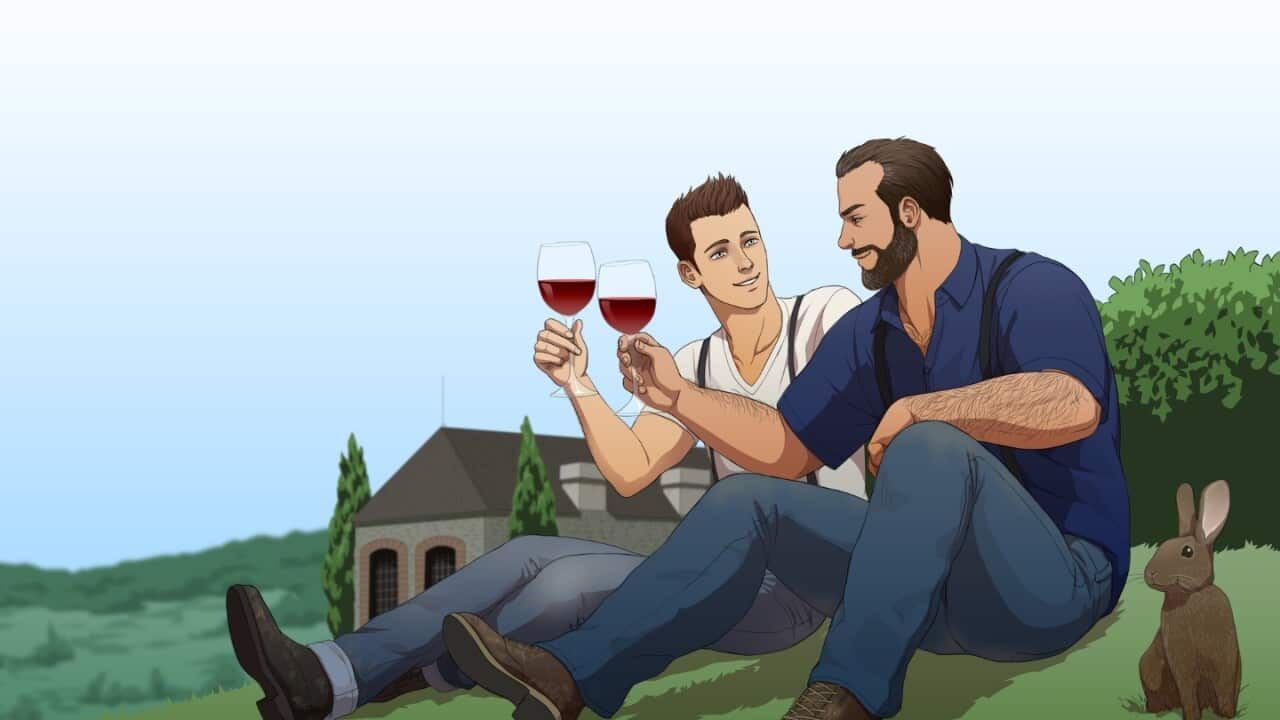Recently, I was swiping through my Instagram stories when I came across the story of a queer person who was attending this year's Mardi Gras. In between the parade and her group of friends was a barrier of people, many of them straight-and-cis-presenting. "Straights to the back!" blazed across my screen in the bold text of her story - and rightly so, I think. These self-professed "allies" attending this celebration of the LGBTIQ+ community were directly taking up space that belongs to those within it.
As I watched, I asked myself: If I were attending, where would I stand? Or more pointedly, where would I deserve to stand?
This isn't an easy question for me. To find the answer means not just a recognition of my privilege, but also to wade through the complex layers of my own anxiety and internalised bi-erasure.
I am a bisexual, cis-gendered and hetero-passing woman in a relationship with a cis man, whom I've been dating for a year and a half.
But before that, I was queer as hell.
My previous relationship was my first girlfriend, who threw everything I thought I knew about myself up in the air. While I was dating her, I rarely questioned my position in the LGBTIQ+ community. I attended rallies, I joined in Pride, I felt comfortable in queer spaces. The evidence was there for everyone to see. I was queer! Look at me in my gay relationship! With so much tangible evidence of my sexuality, there was no doubt in my mind that I belonged.
Now that I'm no longer in a same-sex relationship, it's immediately harder to justify where or if I still belong in the community. Thing is - more often than not - the bi-phobia and questioning doesn't come from others, it manifests internally, egged on by my ever-present anxiety and depression.
I frequently find my mind falling back on well established notions of bi-erasure when I think about where I fit. In the same way that impostor syndrome feeds doubts of professional legitimacy, my internalised bi-erasure acts as a mental barrier to accepting and perhaps even more fully embracing my queerness as a valid and constant part of my being.
I circle the drain of damaging thinking, borne from the all-too-familiar cliches of bi-phobia and bi-erasure: “Maybe it was just a phase” I think, “maybe you’re actually a fraud,” while thoughts like “you’ve undone all your gay-ness now that you’re dating a man” lead onto bitter accusations of “you’re a straight woman masquerading as a bi woman for brownie points”.
It’s hard to feel as though my position within the LGBTIQ+ community is valid when I'm up against such damning thoughts.
Like any anxiety, I search for the instances that confirm my suspicions as truth. Like that LGBTIQ+ group I was a part of, that brandished any discussion of opposite-sex relationships with the label "heterobore" and effectively silenced me and others in the group from feeling able to contribute unless our conversations were "gay" enough. I allow these instances to corroborate my anxieties, while I ignore examples that only serve to quash them.
At least I have receipts to show for my queerness, something I rely on time and time again to validate my bisexuality when the bad thoughts come looming in. I can't even imagine how it must be for bisexual women who’ve never had the chance to explore their bisexuality - who've found themselves in “hetero” relationships before they've realised or come to grips with their attraction to women.
Even more so for their sakes than mine, the existence of "proof" shouldn't make a difference when it comes to the validity of anyone’s bisexuality. This recent Twitter thread from @ellle_em is telling of how harmful it can be to only validate queerness or bisexuality when there's something to show for it.
The thread and all its replies show just how susceptible bisexual people either in “hetero” relationships or without any experience in same-sex relationships are to building up strong narratives that deny them access to the LGBTIQ+ community. It’s bittersweet to know that I’m not alone.
I hope that in time and with more effort made to undo all the damage that has been done in my mind, I can come to find a comfortable place in the community - where I feel valid regardless of my relationship status, and where no amount of evidence is required. I hope this happens for my fellow bi's, too. And maybe next year I'll hit up Mardi Gras festival and throw myself into the crowd, knowing for sure in my mind that that's where I belong.



